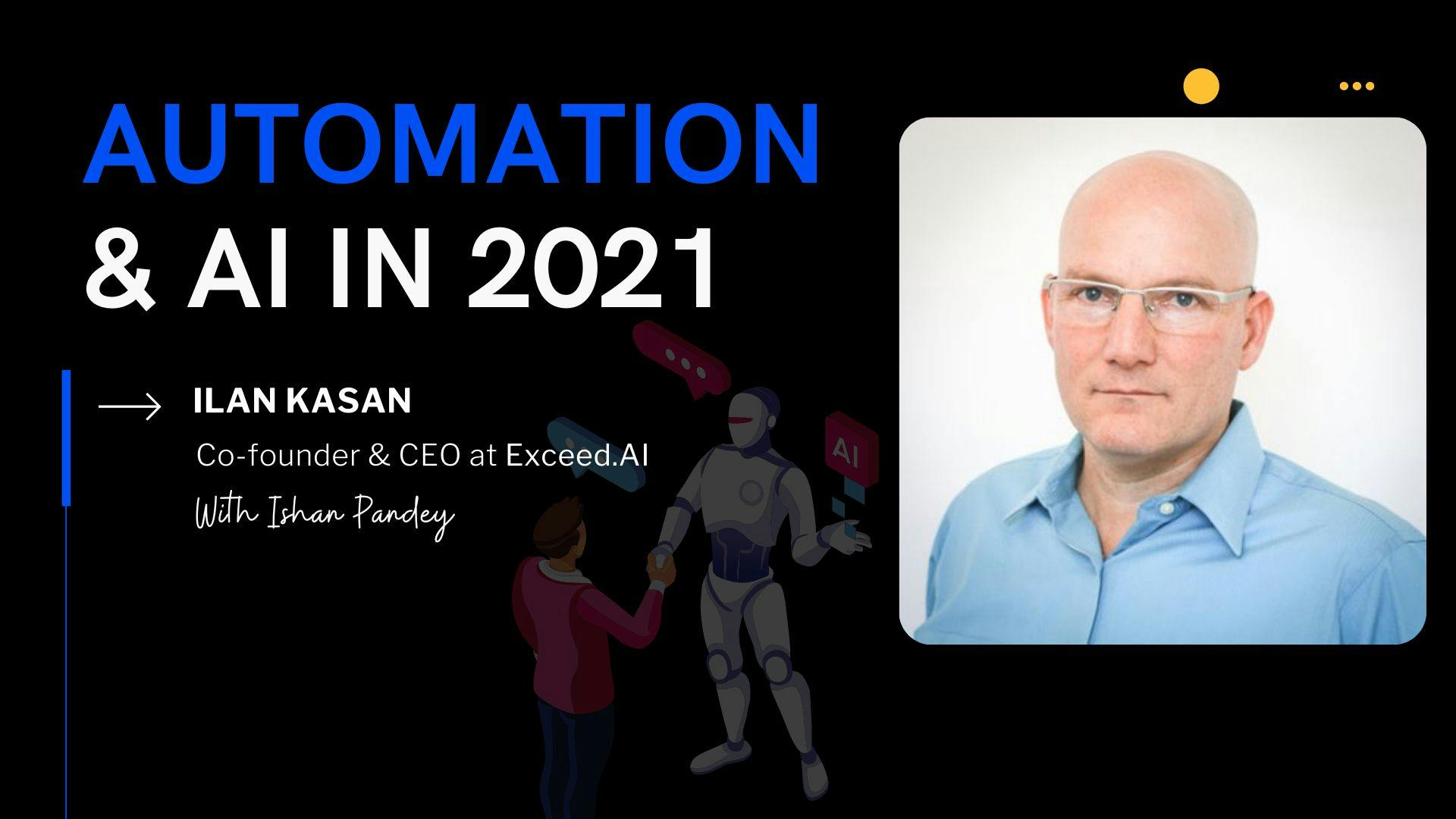328 reads
The Robots are Coming! - An Interview with Ilan Kasan, CEO at Exceed AI
by
February 20th, 2021

Building and Covering the latest events, insights and views in the AI and Web3 ecosystem.
About Author
Building and Covering the latest events, insights and views in the AI and Web3 ecosystem.
